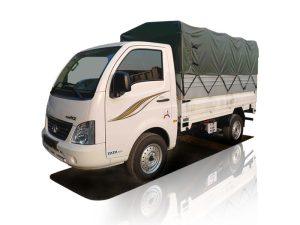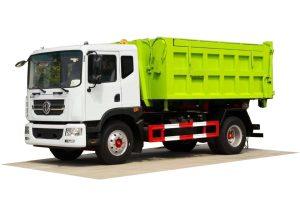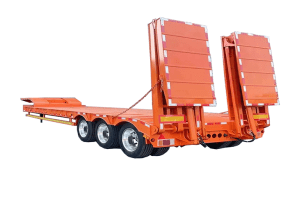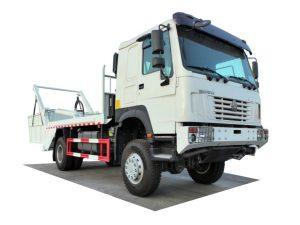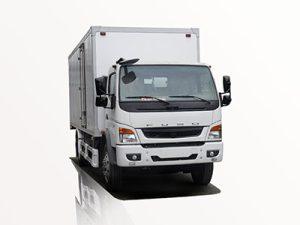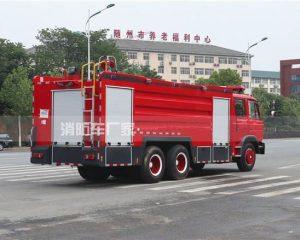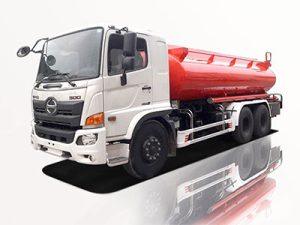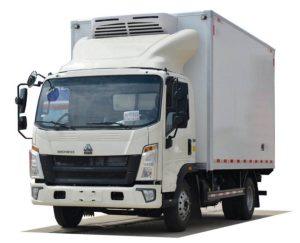Monday to Saturday - 8:00 -17:30
Everything You Need to Know About Small Refrigerated Vans
Small refrigerated vans are essential for businesses that require the transportation of temperature-sensitive goods. These vehicles provide the perfect solution for keeping perishable items fresh and safe during transit. Whether you’re in the food industry, pharmaceuticals, or any sector that demands refrigerated transport, understanding the benefits, features, and considerations of small refrigerated vans is vital. In this guide, we will explore everything you need to know about small refrigerated vans, ensuring you make the right choice for your business needs.
Understanding Small Refrigerated Vans
Small refrigerated vans, often referred to as reefer vans, are specialized vehicles equipped with refrigeration units to maintain a cool environment for transporting perishable goods. These vans may come in different sizes and configurations, but they all share the primary goal of protecting temperature-sensitive products from spoilage.
Why Choose a Small Refrigerated Van?
There are several reasons why small refrigerated vans are a smart choice for businesses:
- Temperature Control: These vans maintain a specific temperature range ideal for perishable goods, reducing spoilage risks.
- Flexibility: Their smaller size allows for easier maneuvering in urban environments and tighter delivery schedules.
- Cost-Effective: Small refrigerated vans are generally more fuel-efficient than larger trucks.
- Versatility: They can be used for various applications, including food distribution, pharmaceutical delivery, and floral transport.
Key Features of Small Refrigerated Vans
When considering a small refrigerated van, it’s essential to understand its key features. This knowledge ensures that the vehicle meets your business requirements.
1. Refrigeration System
The refrigeration system is the heart of any refrigerated van. Options may include:
- Direct Drive: Powered by the vehicle’s engine, usually more reliable and requires less maintenance.
- Independent System: A separate unit that can operate while the vehicle is off, providing flexibility during longer stops.
2. Temperature Range
Small refrigerated vans typically maintain temperatures ranging from -20°C to +10°C, depending on the goods being transported. It’s crucial to choose a van that can accommodate your specific temperature needs.
3. Insulation
Good insulation is vital for energy efficiency and temperature maintenance. Look for vans with high-quality insulation materials that minimize heat transfer.
4. Size and Capacity
Small refrigerated vans come in various sizes. Consider the cargo volume and weight you need to transport. Common options include:
| Type | Cargo Volume (m³) | Payload Capacity (kg) |
|---|---|---|
| Compact Van | 2-5 | 500-1000 |
| Medium Van | 5-10 | 1000-1500 |
| Large Van | 10-15 | 1500-2000 |
5. Additional Features
Other notable features include:
- GPS Tracking: Monitors the location of goods in transit.
- Temperature Monitoring: Ensures the refrigeration system performs adequately throughout the journey.
- Load Area Design: Efficient load securing systems and easy access doors enhance usability.
Choosing the Right Small Refrigerated Van
When choosing a small refrigerated van, several elements come into play that can influence your decision.
1. Assess Your Business Needs
Evaluate your transportation requirements. Consider the types of goods you need to transport, the distances covered, and the frequency of deliveries. This assessment will guide you in selecting the right van configuration and size.
2. New vs. Used Vans
Decide between purchasing a new or used van. New vans offer the latest technology and warranties, while used models can be a more budget-friendly option. Make sure to check the maintenance history and perform an inspection on used vehicles.
3. Budget Considerations
Establishing a budget is crucial. Consider not just the purchase price but also running costs such as fuel, insurance, and maintenance. Small refrigerated vans often have lower operational costs compared to larger trucks.
4. Compliance and Regulations
Different regions have varying regulations regarding the transportation of perishable goods. Familiarize yourself with local laws governing temperature control and ensure your van complies with these regulations.
Practical Examples of Small Refrigerated Vans in Use
Example 1: Food Distribution
Many catering services and food distribution companies use small refrigerated vans to deliver fresh produce, dairy, and meat. For instance, a catering company could operate a compact refrigerated van that efficiently delivers meals to various events while maintaining food safety standards.
Example 2: Pharmacy Deliveries
Pharmacies often need to transport temperature-sensitive medications. Here, a small refrigerated van with independent refrigeration can ensure that medications are kept within the required temperature range, even during delivery stops.
Example 3: Floral Deliveries
Florists commonly use refrigerated vans to deliver arrangements, as many flowers require a cool environment to maintain freshness. A small, temperature-controlled van allows florists to deliver flowers to events and stores, ensuring they arrive in pristine condition.
Maintenance and Care for Small Refrigerated Vans
Proper maintenance is crucial for the longevity of your small refrigerated van. Here are some maintenance tips:
1. Regular Inspections
Frequent checks of the refrigeration system are essential to ensure it functions correctly. Keep an eye on the temperature gauges and make sure the coolant levels are adequate.
2. Cleaning the Interior
Regularly clean the interior of the van to prevent odors and contamination. Use approved cleaning agents to ensure the surfaces remain safe for food and pharmaceuticals.
3. Schedule Routine Maintenance
Follow the manufacturer’s service schedule for routine maintenance. This might include oil changes, brake checks, and regular servicing of the refrigeration unit.
4. Monitor Temperature
Install temperature monitoring systems that alert you if temperatures rise above or fall below acceptable levels during transit. This can help prevent costly spoilage.
Cost Considerations for Small Refrigerated Vans
The costs associated with owning and operating small refrigerated vans can vary significantly. Here are some factors to consider:
1. Purchase Price
The initial purchase price for small refrigerated vans typically ranges from $20,000 to $50,000, depending on the model and specifications.
2. Fuel Efficiency
Fuel efficiency is crucial for operational costs. Small refrigerated vans usually get better mileage than larger trucks, resulting in lower fuel expenses.
3. Insurance and Licensing
Factor in insurance costs that can vary based on the vehicle type and your business’s risk profile. Additionally, ensure you have the necessary licenses to operate a refrigerated transport vehicle.
4. Maintenance Costs
Plan for ongoing maintenance costs, such as servicing the refrigeration unit, oil changes, and general upkeep. Regular maintenance can prevent costly repairs.
Frequently Asked Questions (FAQs)
1. What is the average temperature range for small refrigerated vans?
The average temperature range for small refrigerated vans is generally between -20°C to +10°C, depending on the needs of the goods being transported.
2. Are small refrigerated vans energy-efficient?
Yes, small refrigerated vans are typically more fuel-efficient than larger trucks, reducing overall operational costs.
3. How often should a refrigerated van be serviced?
It’s recommended to service a refrigerated van every 3 to 6 months or as per the manufacturer’s recommendations to keep it running efficiently.
4. Can small refrigerated vans be used for non-food transportation?
Absolutely! Small refrigerated vans are versatile and can be used to transport pharmaceuticals, flowers, and any perishables that require temperature control.
5. What maintenance is required for the refrigeration unit?
Regular checks for coolant levels, cleaning coils, and ensuring proper functioning of the system are necessary maintenance tasks for refrigeration units.
6. Is it necessary to install a temperature monitoring system?
While not mandatory, a temperature monitoring system is highly recommended to ensure products are kept within the required temperature range during transport.


